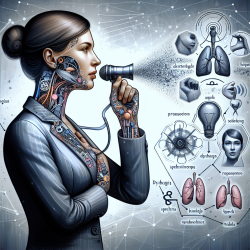The Interconnection Between Education and Health
Education is often viewed as a stepping stone to economic success, but its benefits extend far beyond financial gain. A recent study, "The influence of education on health: an empirical assessment of OECD countries for the period 1995–2015," highlights the profound impact education has on health outcomes across 26 OECD countries. This research underscores the importance of education as a fundamental determinant of health, influencing factors such as life expectancy, infant mortality, and overall well-being.
Key Findings from the Research
The study reveals that individuals with higher educational attainment tend to enjoy better health and longer lifespans. Tertiary education, in particular, plays a critical role in improving health indicators such as infant mortality rates, life expectancy, and child vaccination rates. The research suggests that education not only provides knowledge and skills but also fosters healthier lifestyles and better access to healthcare resources.
Implications for Practitioners
For practitioners in the field of education and health, these findings offer valuable insights into how educational policies can be leveraged to improve public health. Here are some actionable steps practitioners can take:
- Promote Tertiary Education: Encourage policies that increase access to tertiary education, as it has a significant positive impact on health outcomes.
- Address NEET Rates: Focus on reducing the rates of young people who are not in employment, education, or training (NEET), as high NEET rates are associated with poorer health outcomes.
- Enhance Health Education: Integrate health education into school curricula to raise awareness about healthy behaviors and preventive care.
- Collaborate Across Sectors: Work with policymakers, healthcare providers, and educational institutions to create comprehensive strategies that address both educational and health disparities.
Encouraging Further Research
While the study provides a robust analysis of the education-health relationship, it also opens avenues for further research. Practitioners are encouraged to explore the following areas:
- Longitudinal Studies: Conduct long-term studies to understand the causal relationships between education and health over a lifetime.
- Geographic and Cultural Variations: Investigate how different geographic and cultural contexts influence the education-health nexus.
- Interdisciplinary Approaches: Employ interdisciplinary research methods to capture the complex interplay between social, economic, and environmental factors in education and health.
Conclusion
Education is a powerful tool that not only equips individuals with knowledge and skills but also lays the foundation for a healthier society. By understanding and leveraging the relationship between education and health, practitioners can contribute to reducing health disparities and improving the quality of life for future generations.
To read the original research paper, please follow this link: The influence of education on health: an empirical assessment of OECD countries for the period 1995–2015.










